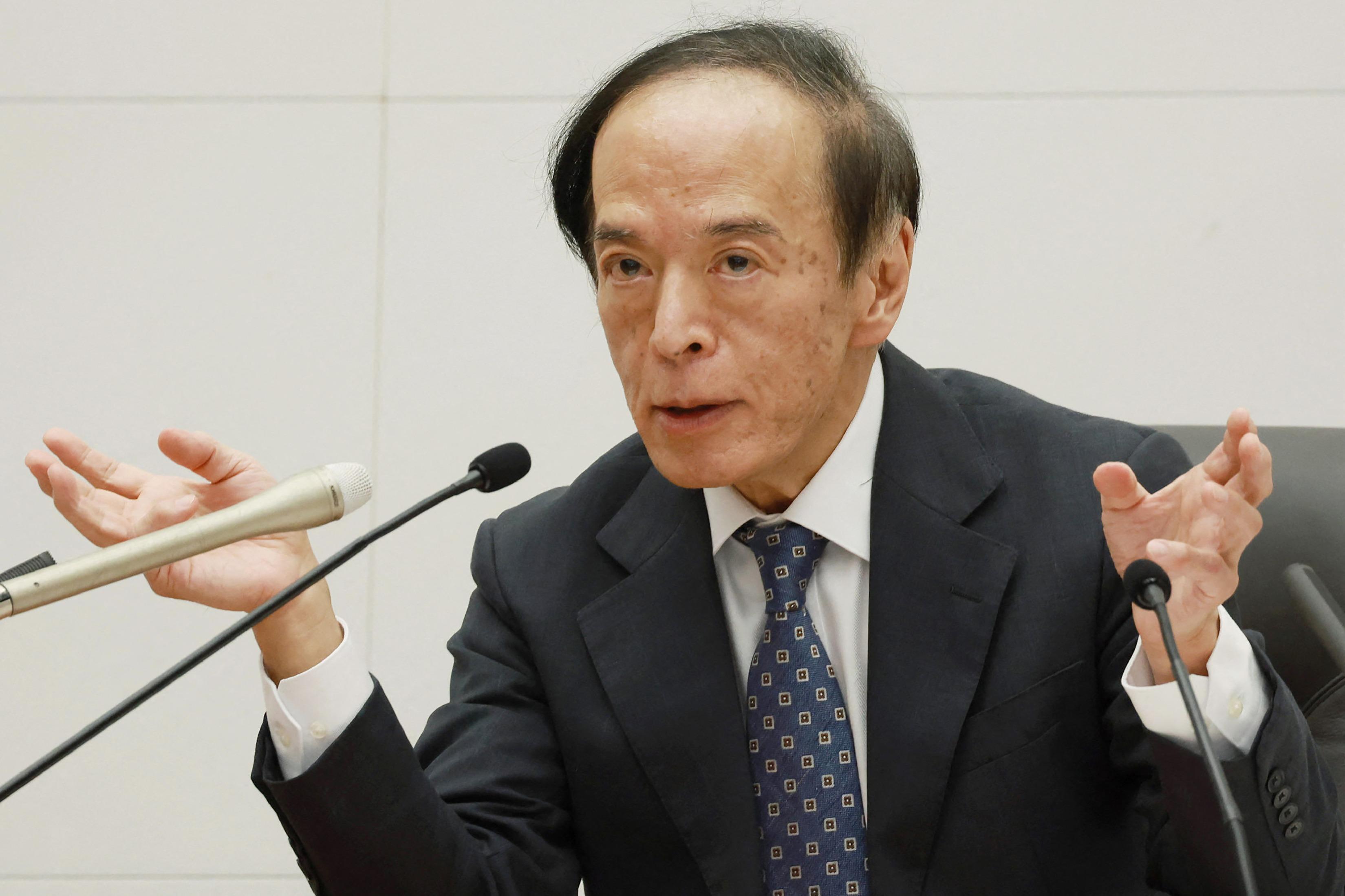 Bank of Japan governor Kazuo Ueda speaks during a press conference after holding a monetary policy meeting at the Bank of Japan headquarters in Tokyo on September 22, 2023. (PHOTO / AFP)
Bank of Japan governor Kazuo Ueda speaks during a press conference after holding a monetary policy meeting at the Bank of Japan headquarters in Tokyo on September 22, 2023. (PHOTO / AFP)
OSAKA - Bank of Japan Governor Kazuo Ueda said there was "very high uncertainty" over whether companies would continue raising prices and wages, stressing anew the bank's resolve to maintain ultra-loose monetary policy.
The key to the outlook for monetary policy is whether strong wage growth and consumption, rather than cost pressures from rising import costs, become the key driver of inflation, Ueda said.
ALSO READ: BOJ keeps ultra-loose policy, dovish guidance on outlook
"We're seeing some signs of change in corporate wage- and price-setting behavior. But there is very high uncertainty on whether these changes will broaden," Ueda told business leaders in the western Japanese city of Osaka on Monday.
Ueda said the BOJ was "not fully convinced" that wage hikes would keep accelerating, as many companies seemed undecided on their wage strategy for next year and beyond
The BOJ maintained ultra-low interest rates on Friday and its pledge to keep supporting the economy until inflation sustainably hits its 2 percent target, dispelling market speculation that rising inflation would soon prod the bank to phase out its massive monetary stimulus.
Ueda said the BOJ was "not fully convinced" that wage hikes would keep accelerating, as many companies seemed undecided on their wage strategy for next year and beyond.
READ MORE: Shares rise, dollar drops vs yen after BOJ hint of exit from negative rates
"The policy prescription to deal with inflation varies depending on what is causing the price rises," Ueda said.
"The cost-push inflation we've seen so far hurts companies and households. That's why we are supporting demand and the broader economy with easy monetary policy," he added.
While stressing the need to keep ultra-loose policy for now, Ueda said it was "extremely important" to weigh the benefits and costs of its policy.
READ MORE: Govt: Japan at 'inflection point' in 25-year battle with deflation
On the yen's recent falls, Ueda said the BOJ was keeping a close eye on their impact on economic and price developments.
The BOJ's ultra-loose policy has been blamed by some politicians as hurting households and retailers by weakening the yen, and pushing up raw material import costs.
In the past, a weak yen had drawn words of praise from business executives in Osaka, which is home to big exporters and manufacturers like Panasonic.
READ MORE: BOJ shock prompts breather for shares, US inflation data up next
But executives who spoke at Monday's session with Ueda complained of the pain the weak yen was inflicting on smaller firms struggling to cope with rising raw material costs.
"We hope the BOJ will slowly and carefully move toward an exit from ultra-easy policy," Shingo Torii, head of the Osaka Chamber of Commerce and Industry, said in the meeting with Ueda.


